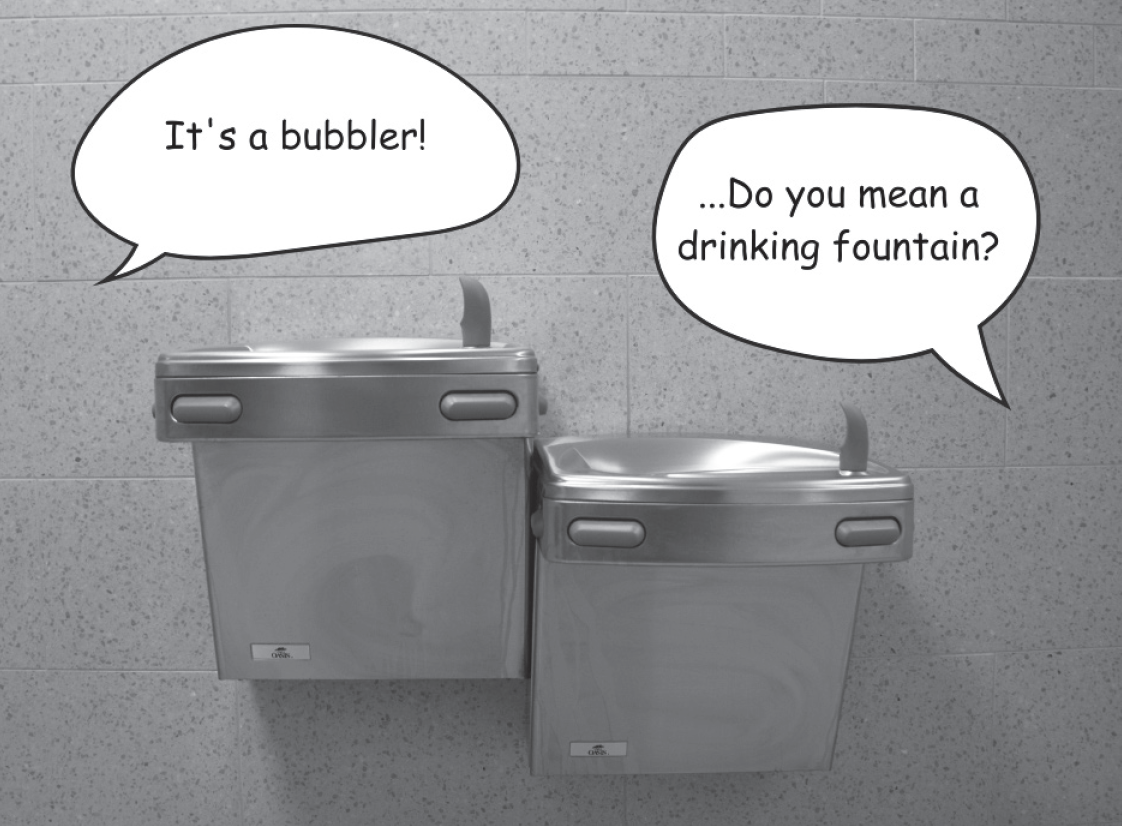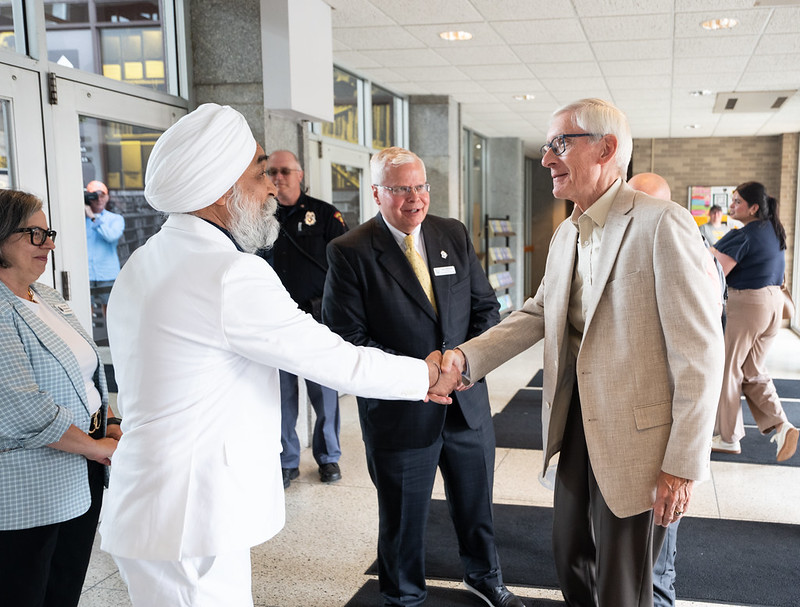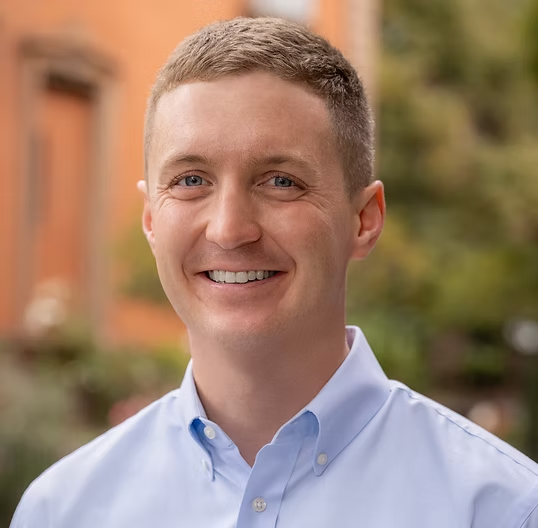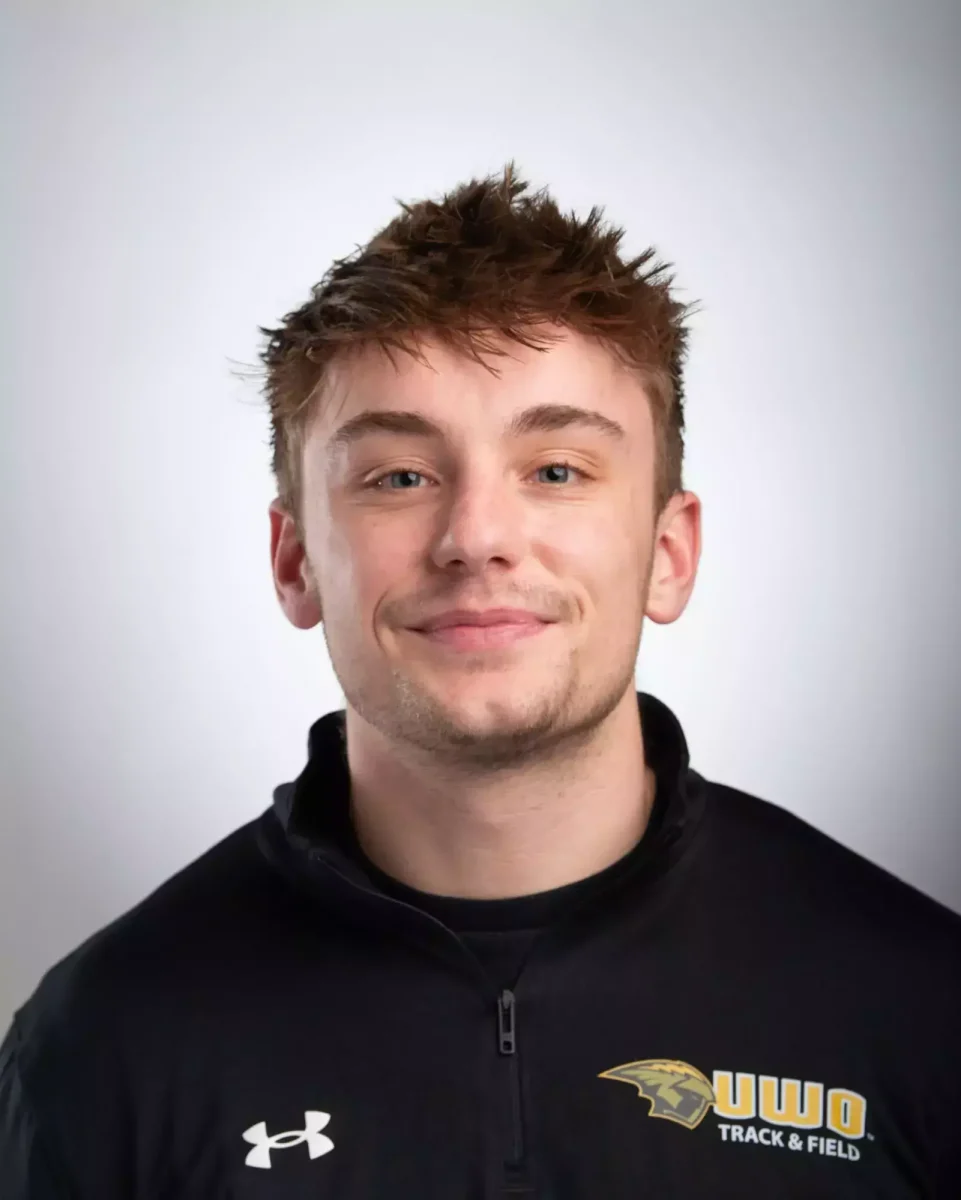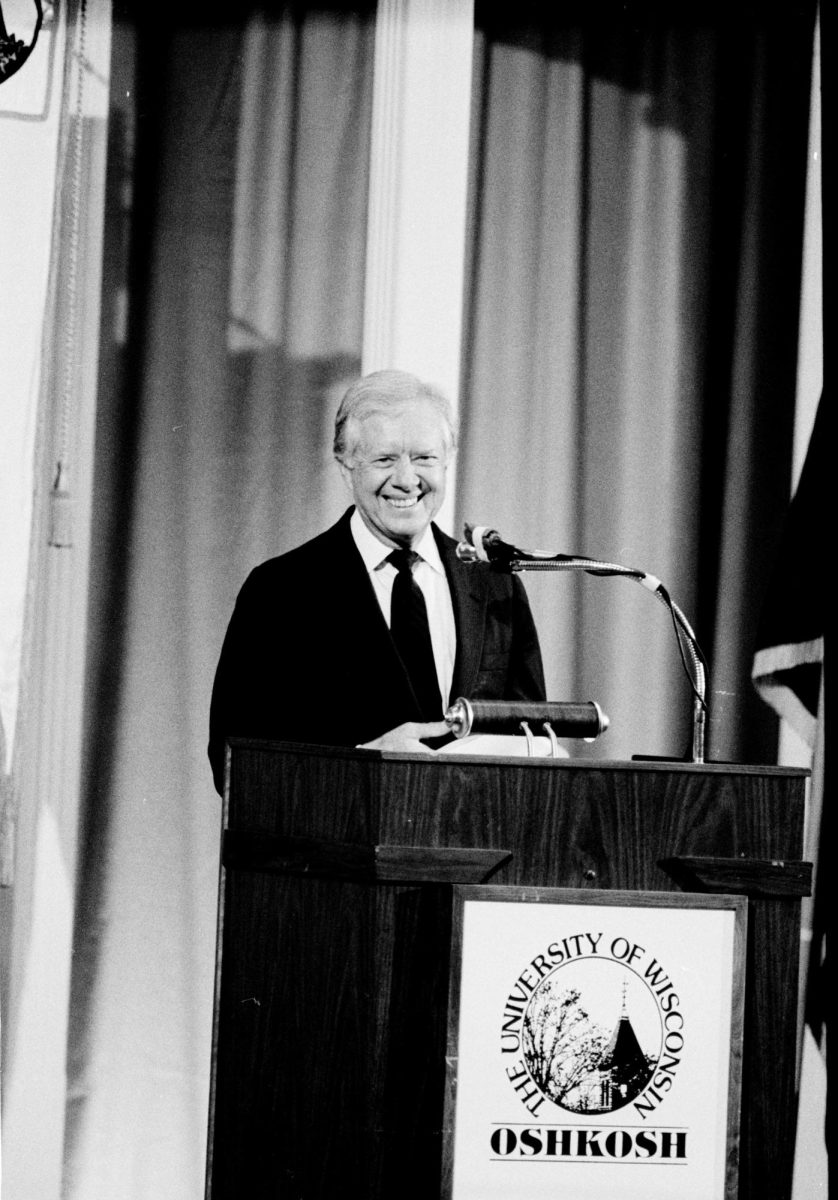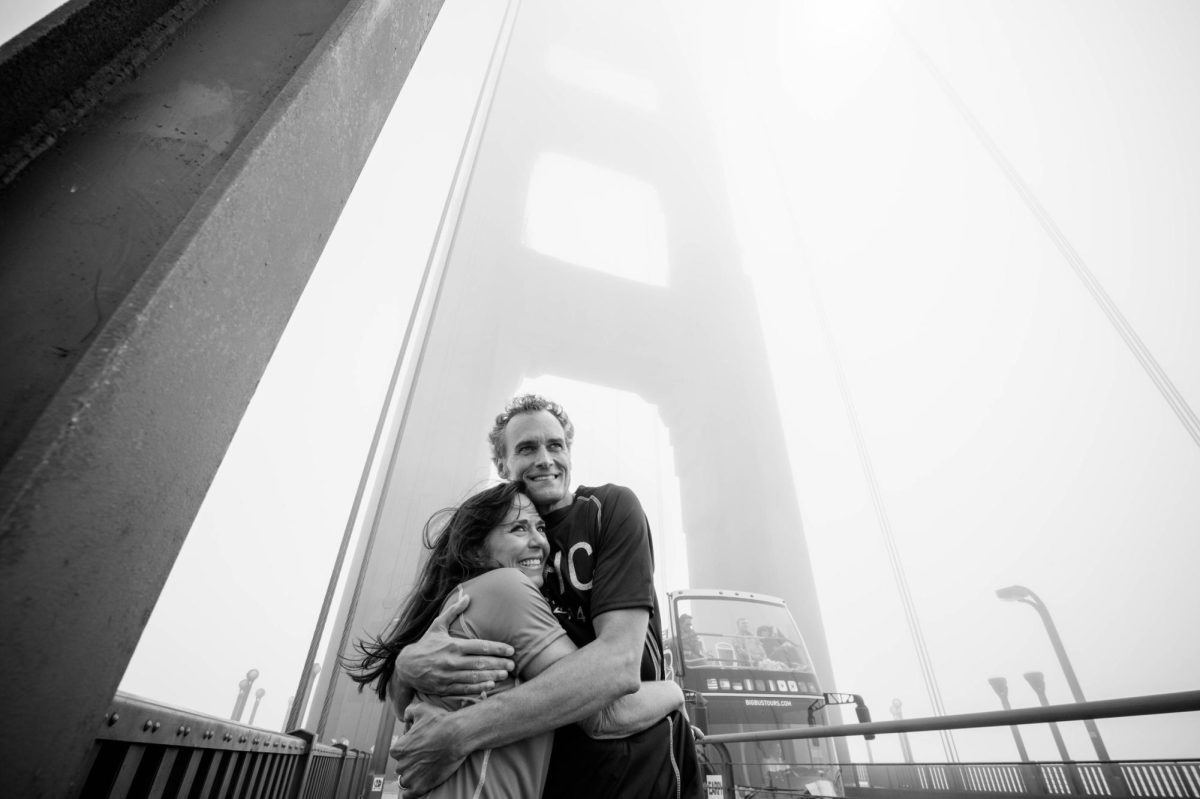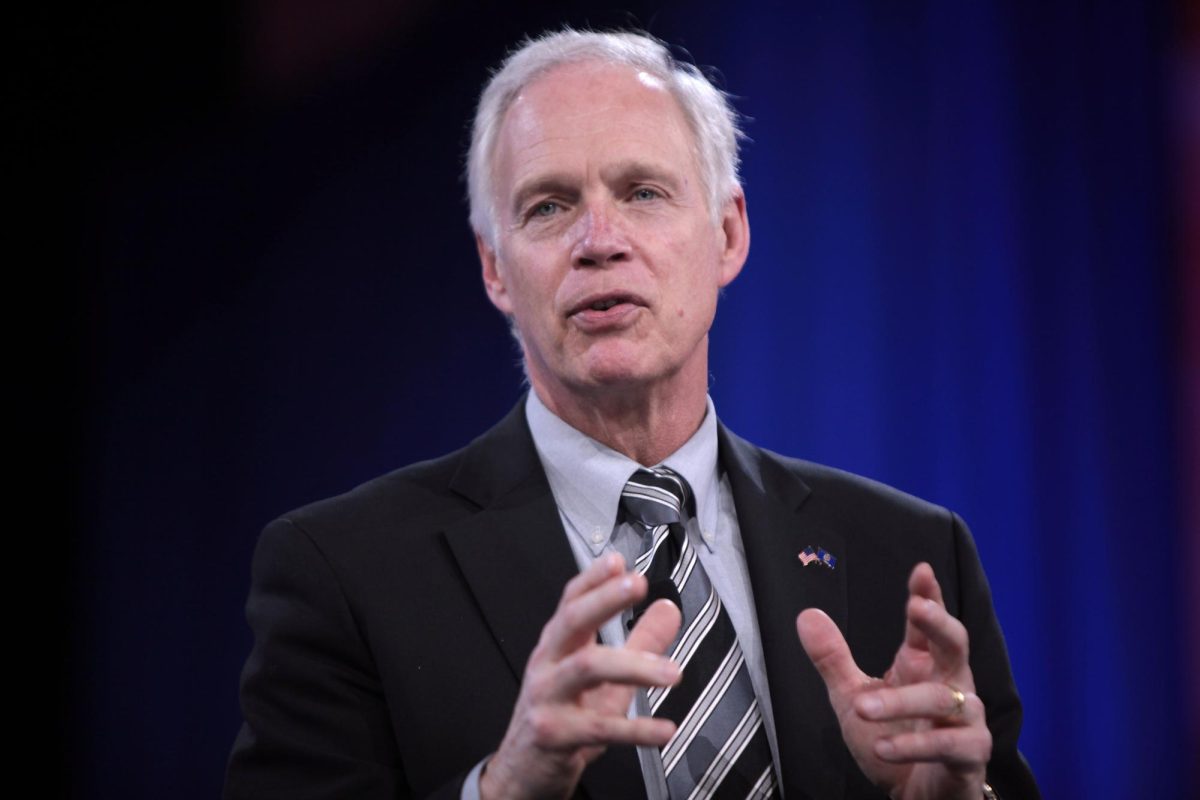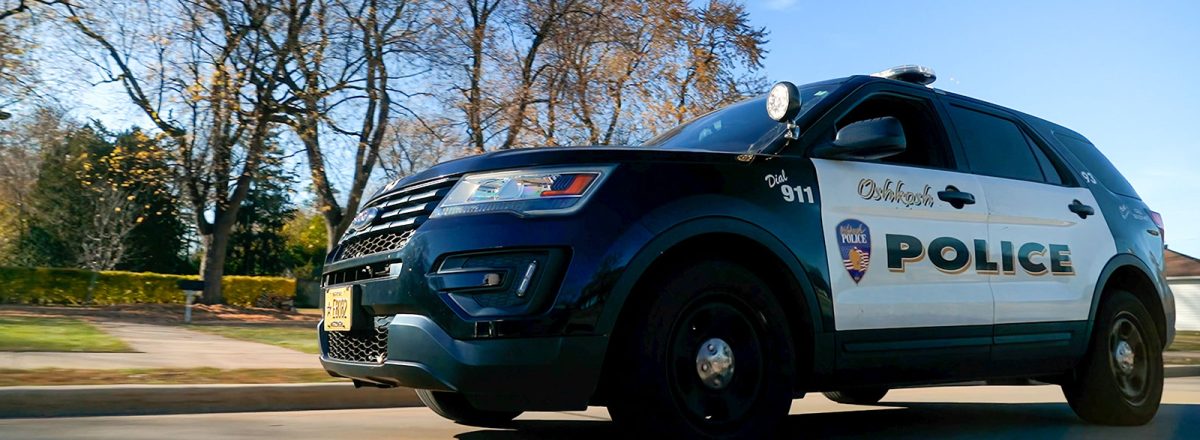After moving to Wisconsin when she was 15, Massachusetts-born Payton Catron was left scratching her head as she received a so-called “hotdish” as a welcome gift.
“I had no clue what it was,” she said. “Someone brought tater tot hotdish over for us after we moved and we didn’t understand that a ‘hotdish’ was what we would always call a casserole.”
Little did she know, this was just her first taste of the unique language that is Wisconsin slang. Catron said some sayings stuck out to her almost instantly, despite them being used without thought by native Wisconsin residents.
“Some that instantly struck me after moving here were ‘ope’ and ‘uff-da!’” she said.
If you’re not from the Midwest, ope is a variant of oops, and uff-da is used to express either surprise or a sense of relief.
How someone speaks can say a lot about where they’re from, and Wisconsinites are no exception.
Between the “Midwest Nice,” the latest Packer gossip and hour-long Wisconsin-style goodbyes, it’s no surprise America’s Dairyland has created slang unique to the state.
For example, while most Americans refer to significant others as “babe” when using a pet name, Wisconsinites are more likely to use the name “Big Daddy,” according to a study by marketing agency Fractl.
The same study shows that in Wisconsin, the drunkest state in the United States according to a 24/7 Wall Street study, people don’t get “loaded,” they get “buzzed.”
UW Oshkosh English Chair Margaret Hostetler said these differences in language stem from our tendency to adopt different words, phrases or even accents as our own.
“Linguist differences occur because language is an incredibly flexible way that humans communicate,” Hostetler said. “We grow up picking up the ways of talking of the people around us, and if we move to different places, we continue to pick up different ways based on where we are.”
She said people use differences in linguistics to define their role with certain groups and separate themselves from others, with one example being age groups.
“Preteens and teenagers are constantly creating new slang with their friends to signal their identity and solidarity with each other (and so that their parents don’t understand them),” she said.
Kason Maki, who grew up in northern Wisconsin before spending four years in Oklahoma while he was in the Army, was no stranger to not being understood during his time out of state.
Maki said he was often made fun of by people from other regions for his use of Wisconsin slang and colloquialisms.
“I was talking to a couple of friends during drills and I said, ‘start with me last,’” he said. “Everybody was confused and looked at me stupid.”
He said some of his Army friends were confused by sayings many Wisconsinites use without a second thought.
“Sometimes I was mocked for saying things like ‘ope’ or ‘let me squeeze right past ya,’” Maki said. “They also didn’t know why I called drinking fountains bubblers. Apparently they aren’t normal things to say there.”
While Maki’s word choices were sometimes made fun of in Oklahoma, he also said he noticed a difference in how people interacted with strangers, a phenomenon known as the “Midwest Nice.”
“People [in Oklahoma] were more stand-offish if they didn’t know each other,” he said. “All the locals will stare at you and make you leave. Even the bartenders were kind of assholes.”
Meanwhile, Wisconsinites tend to be a bit more friendly to outsiders, Maki said.
“People are nicer and more welcoming [in Wisconsin],” he said. “You can walk into a bar and people will at least try to talk with you.”
Catron also said she could attest for the Midwest Nice stereotype.
“Everyone [in Wisconsin] was just so nice all the time in everything,” she said. “Massachusetts is definitely different. They literally nickname people ‘Massholes.’”
Although travel can bring to light language differences, social media platforms have recently played a role in teaching people about their unique, regional ways of speaking, Hostetler said. One example of this, she said, is the Packer fanatic and “Manitowoc Minute” host, Charlie Berens.
“Since the advent of social media and the internet, people have become more aware of differences in language,” she said. “You can go onto YouTube and search for most any video by Charlie Berens because he is famous for doing hilarious videos about Midwestern accents.”
The nature of social media allows people to pick up on language differences easily without having to actually travel to the region of origin. Because of this, Hostetler said social media has the ability to change language.
“The internet and social media are also a huge source of language change,” she said. “As languagers, we notice language differences right away and we form opinions about them.”
Hostetler said social media, travel and interactions with different groups of people are all driving forces in how we develop language, and in turn, our sense of selves.
“Social forces cause us to choose certain words or styles of speech in different situations — job interviews vs. hanging with friends vs. talking with parents or grandparents, etc,” she said. “Our identities are really tied to how we speak and portray ourselves through language.”
While language differences remain a crucial part of who we are, the ideas are the same, Catron said.
“We all can communicate the same way, we just sound different when we talk,” she said.
So, whether it’s a hotdish or a casserole, a bubbler or a drinking fountain, the resounding message from (almost) all Wisconsinites remains — how we talk says a lot about our identity.


